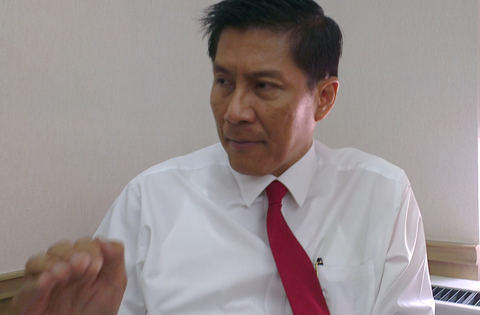NSC to pursue peace talks

The National Security Council is in favour of peace talks with militant groups in the deep South but is against an autonomous state or a special administration zone for ethnic Muslims.
In an exclusive interview with the Isra news team, NSC secretary-general Lt-Gen Paradon Patthanathabut said that the NSC would carry on with its pursuit of peace talks with militant groups although the public might feel that the situation in the restive region has worsened as manifested by a string of violent incidents for the past several weeks.
He appears confident that peace talks will help improve the situation. "Suppose there are 100 militant groups and if we can talk with about ten groups, it will be good enough because the ten groups will stop the violence," he said.
From preliminary peace talks with some militant groups, Lt-Gen Paradon admitted that several militants still harbour the thought of a separate homeland for Pattani. However, he said that there are several secondary issues which are as pertinent as secession such a illicit drug problem, oil smuggling and local political conflicts.
He regarded secessionist struggle as an ideological struggle which will take a long time to be resolved, citing the secessionist war in northern Ireland and Indonesia which went on for 40-50 years before peace agreement was forged. He said he was not worried about this issue and was willing to hold talks with the militant groups if the issue was raised for discussion.
"We are not afraid of a secession issue because the Thai state is still here to stay for many many years to come. There will not be a separate homeland but what we should do is to continue the peace talks," said the NSC chief.
He expressed serious concern over Muslim youngsters who were drawn to join the militant ranks. To cope with this problem, he said that pressure should be applied to force the militant groups into the negotiating table.
As for the special laws enforcible in the deep South, Lt-Gen Paradon said an ad hoc committee had been set up to consider whether any of the laws such as the emergency decree should be lifted or eased. The emergency decree, he said, substituted with the Internal Security Act because the decree is not effective
He dismissed public perception that the situation in the deep South has deteriorated as manifested in a rash of bomb attacks and Friday trading ban. Statistics-wise, he said the situation has not worsened as widely perceived and the trading ban as threatened by the militants would backfire on the outlaws themselves.
Traders had to follow the Friday trade ban because they were not sure that the state could guarantee their safety if they opened their business as usual, he said, adding that the problem has eased with more traders now opening their business as usual after security was beefed up.
